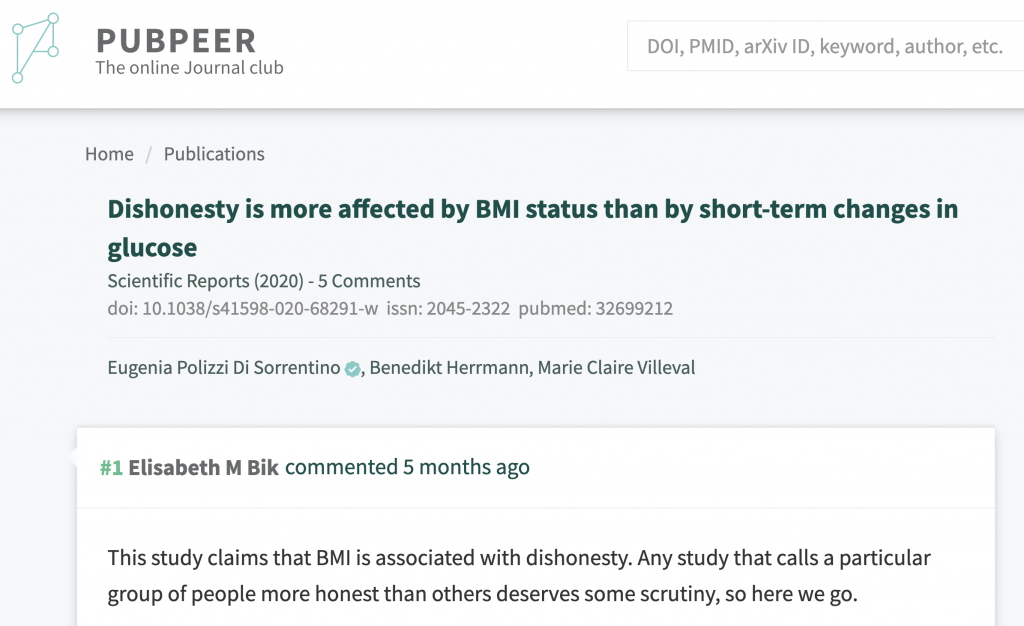
More than five months after outraged readers demanded that a Springer Nature journal retract a paper linking body mass index to honesty, the publication has been pulled.
The journal now says that a post-publication review of the article found that the data don’t support the authors’ conclusions — which is another way of saying that the pre-publication peer review missed that fact.
Publication by Scientific Reports of the article, “Dishonesty is more affected by BMI status than by short-term changes in glucose,” last July caused consternation on social media, as readers wondered what they were reading and why the journal had agreed to publish the study, as well as on the journal’s website.
We mentioned the reaction in an August 6 post, and on August 10 the journal added an editor’s note about the criticisms, saying editors were reviewing them. In an August 11 letter also signed by Colby Vorland, who flagged the retraction for us last night, the Obesity Action Coalition outlined a number of issues with the paper.
One commenter at Scientific Reports — whom, we should note, allow comments directly on papers, unlike most journals — wrote:
The golden age of phrenology feels positively enlightened compared to this.
The paper even prompted a counter-argument, “Mendacity: The tendency to lie or deceive. A cautionary tale in obesity research, stigma, and headlining,” by Michael Kendig, of the University of New South Wales, in Sydney, and colleagues.
According to the retraction notice:
The Editors are retracting this Article.
After publication concerns were raised with respect to the data suggesting a significant positive association between dishonesty and obesity. Independent post-publication peer review has confirmed that this conclusion extends beyond what the data show, given the lack of overall group effects. In addition, multiple comparisons were not appropriately controlled for, and the inclusion of gender in the analysis should have been emphasized as an exploratory addendum to the main analysis. The Editors therefore no longer have confidence in the conclusions presented.
The authors disagree with the retraction.
Nick Brown, who was among those who tweeted about the paper last summer, tweeted:
Eugenia Polizzi di Sorrentino, the lead author of the paper, has not responded to our request for comment. [See update.]
Like Retraction Watch? You can make a tax-deductible contribution to support our work, follow us on Twitter, like us on Facebook, add us to your RSS reader, or subscribe to our daily digest. If you find a retraction that’s not in our database, you can let us know here. For comments or feedback, email us at [email protected].
Peer review needs to be strengthened. There is no need for such garbage to be pandered as science. Also, why is such work being funded? Why would you want to want to further stigmatize an already vulnerable group of individuals? Outrageous.
Peer review remains the best available system but breaks down due to the sheer number of (often horrendous) studies being in review. Strategies to strengthen peer review include publishing the reviews along with the paper (see elife) and/or the reviewers’ names, and to incentivize reviewing.
I assume this particular study wasn’t funded, just the group as a whole.
Nowadays people doing research in pharmaceutical sciences in the field of nanocarriers that are liked by editor for publication purpose, but not much for public interest nor have industrial applicability but conventional formulations such tablet, capsule or syrup, cream, ointment or lotions etc are not generally accepted by editors for publication which have real public benefits and have industrial applicability.